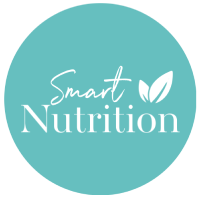Gut health is central to how we feel. Good gut health helps to improve mood, appetite regulation, immune function, bowel function, bloating, and other gastrointestinal symptoms. This blog post covers 7 ways you can improve your gut health!

1. Plant Diversity
Your gut loves variety! Aim for 30+ different types of plant foods per week. Plant foods include fruit, vegetables, nuts, seeds, wholegrains, legumes, herbs and spices.
The best way to hit this target is by switching up your meals each week. This doesn’t necessarily mean eating a completely different meal, but even small changes like adding different fruits each day to your breakfast can help to increase plant diversity!
2. Probiotics
Probiotics are living microorganisms found in fermented foods. They help the body maintain a healthy community of gut microbs
Good probiotic sources include: yogurt, kefir, sauerkraut, kimchi, kombucha, miso, tempeh, and apple cider vinegar.
3. Hydration
Drinking water aids digestion and helps make bowel motions softer, which helps to prevent constipation.
Make sure to carry a water bottle with you throughout the day, and keep track of how much you drink. If you get bored of water, try adding fresh cucumber, mint, and lemon juice. Drinking herbal tea and bone broth also helps with hydration!
4. Sleep
inadequate or poor sleep negatively impacts digestion and gut health. Aim for 7-8 hour of good quality sleep a night.
To help with sleep, make sure to develop a bedtime routine, including going to bed at a similar time each night and avoiding screens for 1 hour before sleeping. Morning sunlight exposure helps to reset your circadian rhythm which in turn improves sleep!
5. Stress
High stress levels trigger the fight-or-flight response, causing blood to divert away from the gut and digestive system to prepare the peripheral tissues for action.
Lower stress by connecting with friends and family, going n a nature walk, getting regular movement, yoga, meditation, deep diaphragmatic breathing, and saying “no” when to things that don’t serve you.
6. Exercise
Gentle exercise like walking and yoga helps digestion and enhances beneficial gut bacteria. Choose a form of exercise that you enjoy, and schedule it into your day/ week to make sure it doesn’t get forgotten.
7. How you eat matters too
Chewing your food well, eating slowly, avoiding distractions, and reducing stress around meal times aids digestion and gut health.
Make sure to put down your utensils between bites, take 5 deep breaths before eating, chew your food well before swallowing, and avoid screens/ other distractions.
